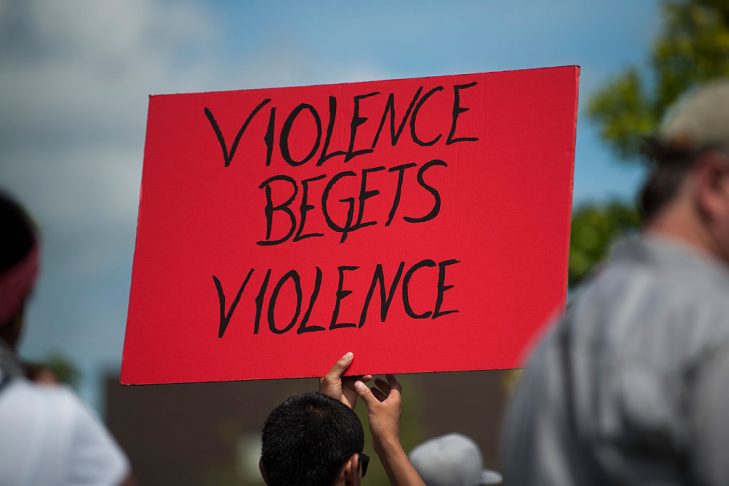This past week has been nothing short of catastrophic. There have been people literally dying in the streets. Black men shot by police in what should have been routine encounters; police officers targeted by snipers at what should have been a peaceful protest. The soup of emotions is thick with anguish, terror, rage, resentment, despair. Social media is inflamed with people taking sides, arguing about whose lives matter. As if there is anyone whose life doesn’t.
The great Elie Wiesel, who died last week, once spoke of the importance of avoiding neutrality, saying that we must take sides. Yet that warning does not apply here, for it presupposes that there are sides. In the overheated media climate, it’s easy to oversimplify: If you speak out against police brutality, it must mean you hate the police. If you mourn the police officers who died protecting protesters, you must be racist. These are fallacies both.
There are no sides.
It is not enough to decry the killing of one person by another. It is not enough to mourn with a family that has suffered a loss. It is not enough to denounce a flawed system that distrusts and debases people on the basis of faulty assumptions.
It is not enough.
In this week’s parsha, Korach falsely accuses Moses and Aaron of elevating themselves above the community, saying, “You have gone too far! The whole community is holy, every one of them, and G-d is with them. Why then do you set yourselves above HaShem’s assembly?” Moses calls upon the Almighty to arbitrate, and Korach and his followers are struck down dead.
The message is clear: while Korach’s words sounded plausible, they were wrong. It is easy to speak in facile slogans, the more so at the speed of tweets. Memes abound, many of them containing a grain of truth, but ultimately it is only a grain.
We need words that heal. We need leaders with the humility of Moses & Aaron, people who can work through the rhetoric and polarization and lead in a spirit of service. We need — now more than ever — leaders who can inspire and insist upon the kind of honest, vulnerable, substantive dialogue that can bind us together as a nation.
Our society may have, in the words of T.S. Eliot, pushed the moment to its crisis. To move beyond the crisis, we need to realize that we are all hurting and that the relief we want and need can only come from, “joining hands, marching together.”
#blacklivesmatter
#bluelivesmatter
#enough
This post has been contributed by a third party. The opinions, facts and any media content are presented solely by the author, and JewishBoston assumes no responsibility for them. Want to add your voice to the conversation? Publish your own post here. MORE



